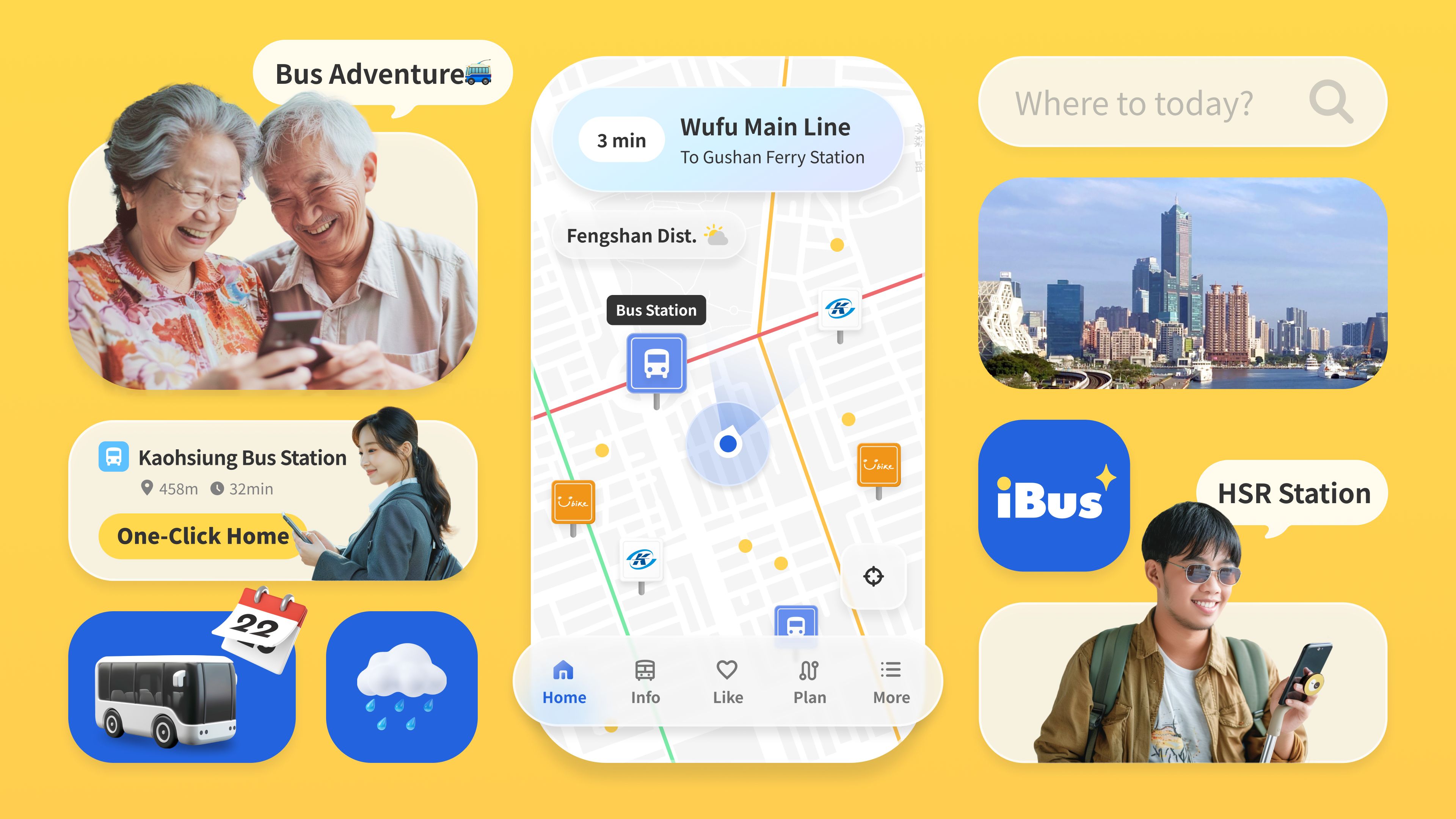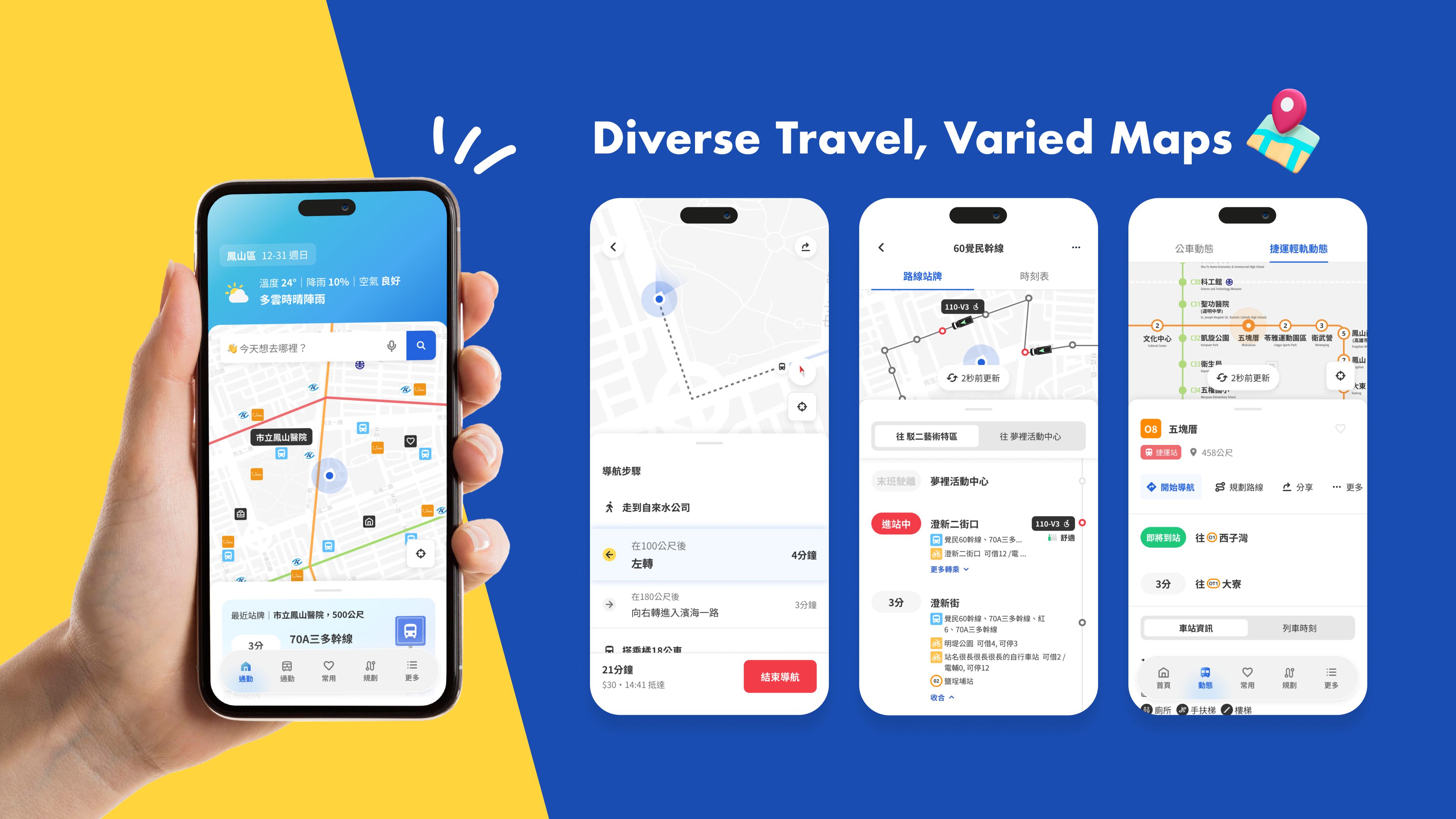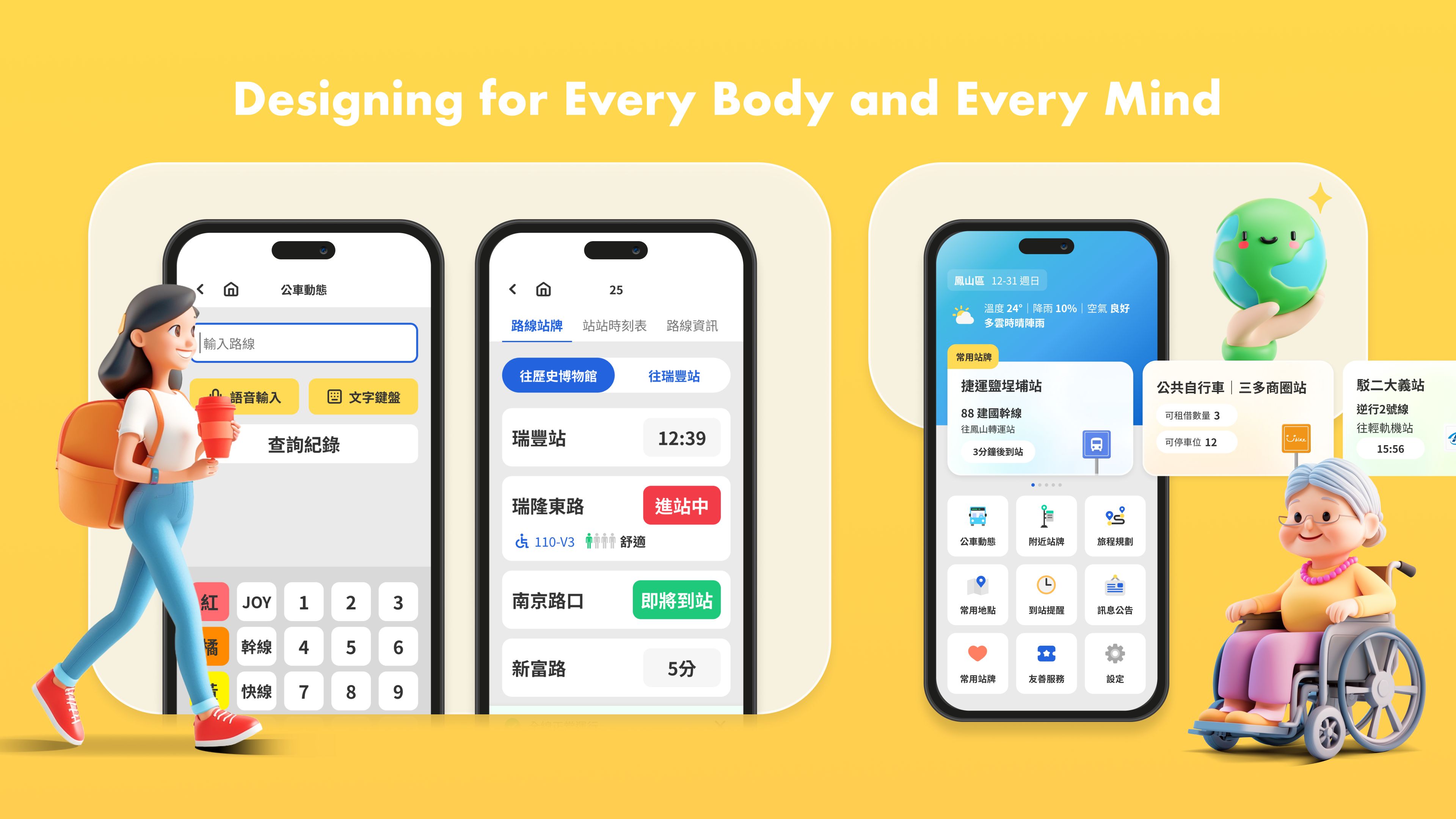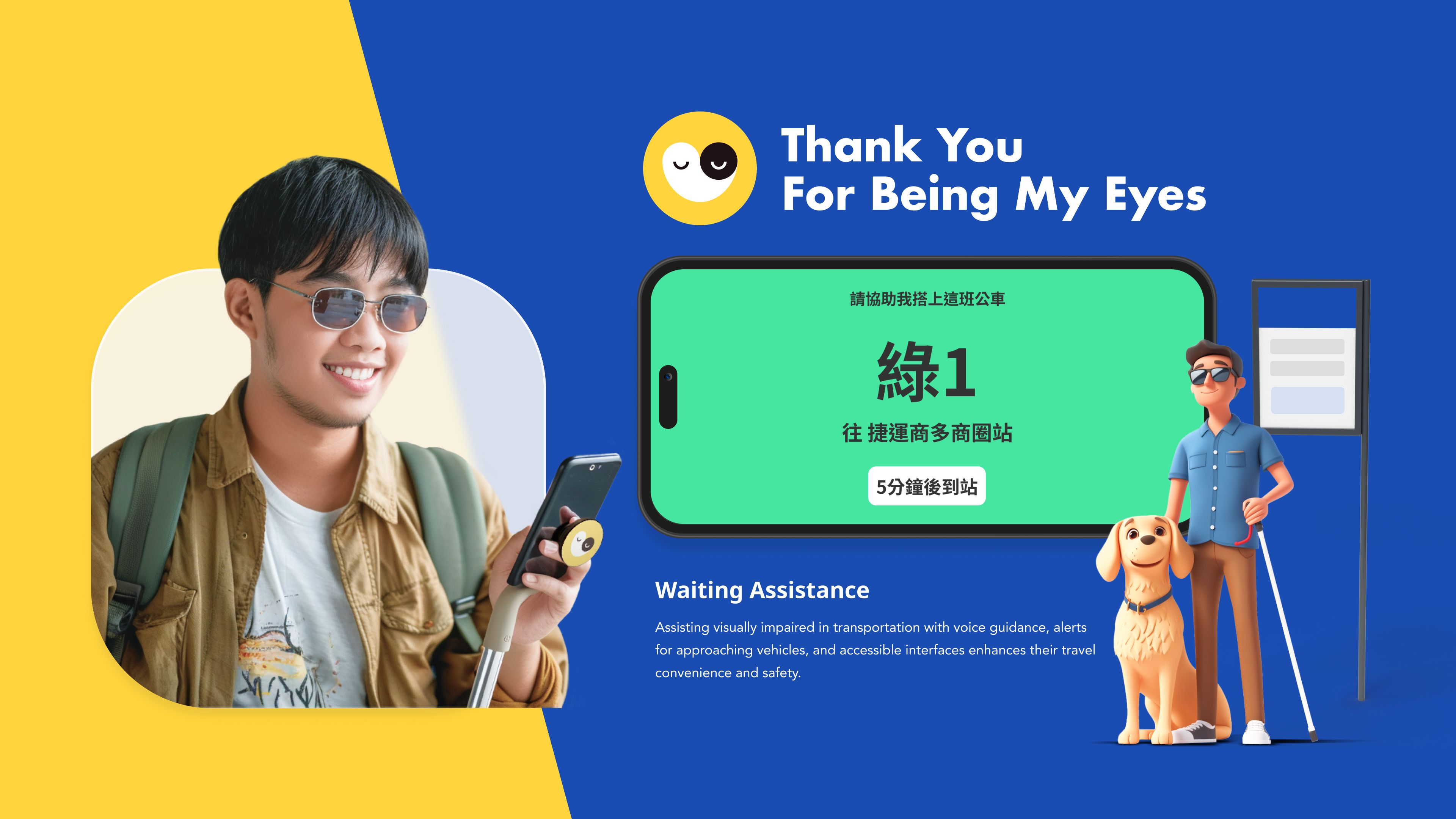
Designers
Yichun Chou, Hsinyi Huang, Xinyin Yu
Year
2025
Category
Product
Country
Taiwan
Design Studio / Department
Smart City

Three questions to the project team
What was the particular challenge of the project from a UX point of view?
The primary UX challenge of the iBus+ project was redesigning a service that had been in use for over a decade, with users deeply accustomed to its interface and operation flow. To integrate new design trends and meet the accessibility needs of elderly and visually impaired users, we needed to optimise the overall experience. This introduced the additional challenge of persuading existing users to adopt the new design despite their fear of change. By conducting iterative user testing and gathering feedback, we incrementally refined the design to balance new features with familiar interaction patterns, reducing resistance and significantly improving usability.
What was your personal highlight in the development process? Was there an aha!-moment, was there a low point?
A highlight was realising that accessibility features like voice prompts and large icons allowed elderly and visually impaired users to operate independently. This validated inclusive design’s value. The “aha!” moment came during testing when we learned user resistance stemmed more from fear of change than dissatisfaction with features. Retaining familiar navigation while gradually introducing updates helped ease this transition.
A low point was when stakeholders questioned the need for redesigning a long-established service. By presenting data and user feedback, we demonstrated that usability improvements enhanced the experience without alienating existing users. This turned scepticism into support, aligning the team and stakeholders.
Where do you see yourself and the project in the next five years?
In the next five years, iBus+ will serve as a benchmark for accessible transportation in smart cities and is expected to expand to other cities, benefiting more people through its inclusive design. With advancements in AI and IoT technologies, we aim to integrate real-time data analysis, smart bus stops, and personalised route recommendations to enhance user experience and satisfaction. By continuously refining the design based on user feedback, iBus+ will align even more closely with urban needs, promoting green transportation and sustainable development. We will continue to champion human-centred design, creating smart, user-friendly transportation services that improve people’s lives.


